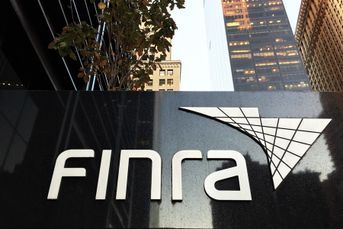Amex, Big Board wage price war over ETFs
Executives at the American Stock Exchange are declaring war over exchange-traded funds – price war, that is. Salvatore…
Executives at the American Stock Exchange are declaring war over exchange-traded funds – price war, that is.
Salvatore F. Sodano, chairman and chief executive, told clients in a letter last week that the exchange will suspend fees on four ETFs starting in August.
The move comes after the New York Stock Exchange announced plans two weeks ago to start unlisted trading of the funds at the end of this month.
The Big Board said it is not going to charge fees to its constituents for the first three months of ETF trading.
The NYSE’s specialists in the funds will also waive commissions for the first three months. Specialists are charged with maintaining an orderly market in securities assigned to them.
As a result, the Amex is firing back.
“The American Stock Exchange is poised to remain the premier place to list and trade ETFs by continuing to deliver the most economical, efficient, flexible and advanced trading environment for our customers,” Mr. Sodano wrote to Amex customers in a July 16 letter.
The moves by the two exchanges are the latest to cut the expense of buying and selling ETFs, one of the fastest-growing ways to invest.
“If you look at competition in general, fund managers like Barclays Global Investors and others have steadily driven down the administrative fees of the funds,” says Kathleen Moriarty, a partner with the New York law firm Carter Ledyard & Milburn and a consultant on ETFs. “And this is another aspect of how competitive the interest in these products has become.”
Observers will watch for the market that offers the tightest spreads – the difference between the bid price and the asked price.
apples and oranges
Observers point to key distinctions between the two exchanges and how they will handle the funds. On the New York Stock Exchange floor, Spear Leeds & Kellogg will be the specialist in the QQQ, which tracks the Nasdaq 100. At the Amex, Susquehanna Financial Group Inc. has been the specialist.
Along with its specialist, the Amex has about two dozen market makers trading the QQQ. Under the Big Board’s auction model, the specialist doesn’t compete with market makers, but sells back and forth between member brokerage firms.
The presence of market makers on the Amex adds another layer of liquidity and competition in price, some observers say.
The NYSE disagrees. “It’s the same model we have for trading equities,” a spokesman says. He adds that the NYSE’s auction style, with one central spot for trading, is intended “maximize orders coming together directly to set the best price.”
Kevin McNally, an ETF analyst and vice president with Salomon Smith Barney Inc. in New York, says investors will benefit from the increased competition. Spreads will most likely narrow.
And the Big Board is not listing any of the ETFs, including the QQQ, which is traded the most widely.
It is trading them under a common strategy called “unlisted trading privileges,” which allows regional exchanges, say, to trade shares listed on another exchange. The Coca-Cola Co., for example, is listed on the Big Board but can be bought on the Chicago Stock Exchange.
But the move to give a stock such status is a first for the Big Board. “If it were the Boston Stock Exchange coming in to UTP it, it wouldn’t make a big difference,” says Mr. McNally. “But the New York Stock Exchange? That’s a big difference.”
the fulcrum
In the ETF scuffle between the two stock exchanges in New York, the most significant of the funds is the QQQ, which tracks the 100 largest non-financial stocks on the Nasdaq Composite Index. It has proved to be the lifeblood of the Amex.
The fund was launched in 1999, and on an average trading day, it makes up more than one-third of the exchange’s ETF trading volume.
During the first half of this year, the Amex traded an average of more than 35 million shares per day in the QQQ, commonly called Qubes.
Three of the ETFs on which the Amex is suspending fees are the very ones that the Big Board said it would start trading: QQQs, Standard & Poor’s Depositary Receipts, known as SPDRs (SPY), based on the S&P 500 stock index; and Diamonds (DIA), based on the Dow Jones Industrial Average.
In addition, the Amex will suspend its fees on the iShares S&P Index Fund (IVV), also based on the S&P 500.
ETFs are like mutual funds in that they are baskets of stocks. Unlike mutual funds, they trade all day, and investors who own enough shares can swap them for the underlying stocks. According to the Amex, 108 ETFs exist currently. Most (106) are listed on the Amex. The other two are listed on the Big Board, and the Chicago Board Options Exchange.
Learn more about reprints and licensing for this article.







